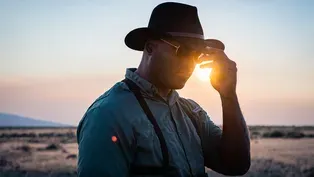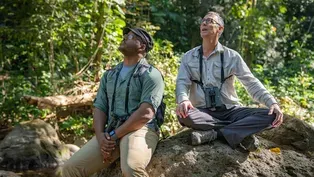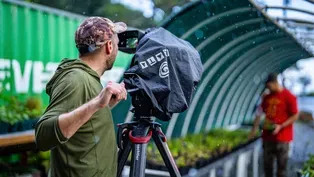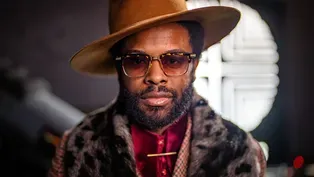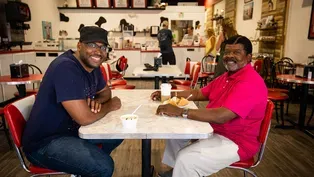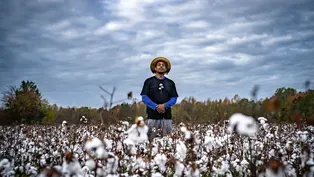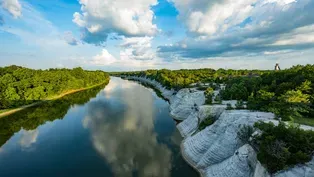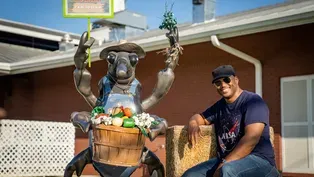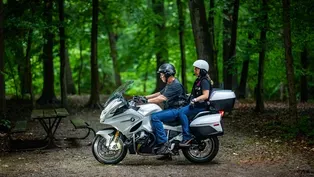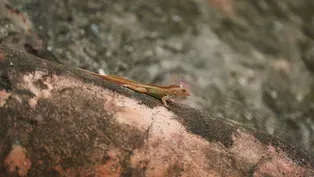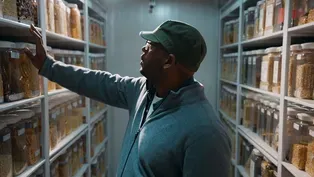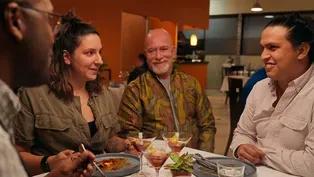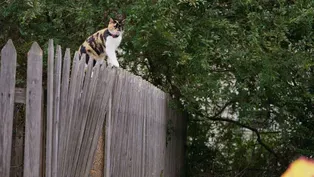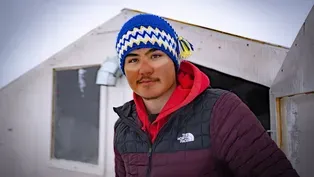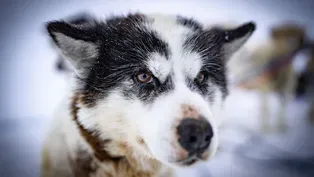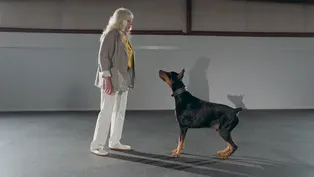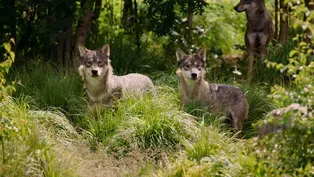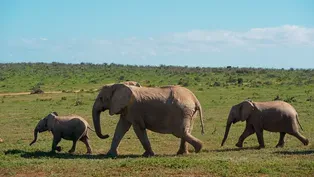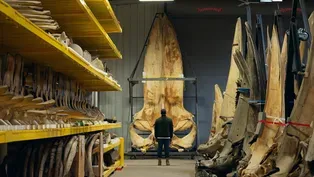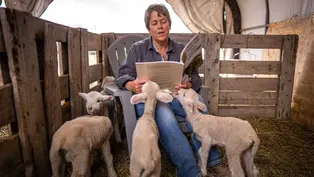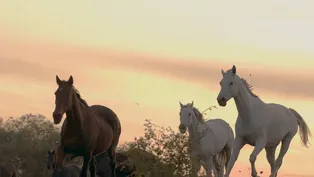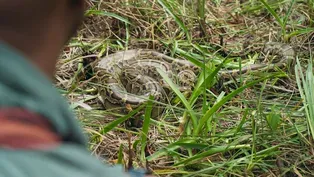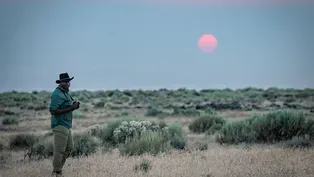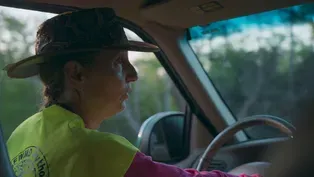
The Making of Episode 1: Strangers in Paradise
Clip: Season 1 | 4m 49sVideo has Closed Captions
An inside look at "invasive" species that make Shane reconsider what it means to belong.
Invasive species are reshaping the world’s ecosystems, but who’s to blame? Shane wrestles a python, hunts Hawaiian pigs, and gets sucker-punched by a carp to answer the question: how does our species decide what belongs? Here’s how it all went down: the dangers of flying fish, the all-nighters in the swamp, and the myriad ways these “invasive” species challenged our ideas about belonging.
Problems with Closed Captions? Closed Captioning Feedback
Problems with Closed Captions? Closed Captioning Feedback

The Making of Episode 1: Strangers in Paradise
Clip: Season 1 | 4m 49sVideo has Closed Captions
Invasive species are reshaping the world’s ecosystems, but who’s to blame? Shane wrestles a python, hunts Hawaiian pigs, and gets sucker-punched by a carp to answer the question: how does our species decide what belongs? Here’s how it all went down: the dangers of flying fish, the all-nighters in the swamp, and the myriad ways these “invasive” species challenged our ideas about belonging.
Problems with Closed Captions? Closed Captioning Feedback
How to Watch Human Footprint
Human Footprint is available to stream on pbs.org and the free PBS App, available on iPhone, Apple TV, Android TV, Android smartphones, Amazon Fire TV, Amazon Fire Tablet, Roku, Samsung Smart TV, and Vizio.
Buy Now

Surprising Moments from Human Footprint
Do you think you know what it means to be human? In Human Footprint, Biologist Shane Campbell-Staton asks us all to think again. As he discovers, the story of our impact on the world around us is more complicated — and much more surprising — than you might realize.Providing Support for PBS.org
Learn Moreabout PBS online sponsorship(upbeat music) - [Narrator] Welcome to the age of humans.
(upbeat music continues) (upbeat music) - These guys didn't sprout wings and fly over from Southeast Asia, we brought 'em here so we made the problem, we gotta, we gotta fix it.
(upbeat music continues) - Strangers in paradise.
It's a story about biology but it's also a story about perception and labels that spans both biology and culture and a lot of interesting and surprising ways.
(upbeat music continues) - After habitat destruction, the leading cause of species decline across the globe, are invasive species.
We've heard a lot about these kinds of stories but our show takes sort of a different perspective on it.
(upbeat music continues) - It's very easy to be like, invasive species bad, native species good, you know?
Like a kind of a binary approach to the world.
- [Nate] It sort of treats invasive species as an extension of ourselves.
How did these species get there and why can't we solve the problem?
- So the myna bird that is here is it a native species or is it an invasive species?
- So there you go, there's the million dollar question.
(upbeat music continues) - When you dig a little bit deeper, it really is a story about how we decide as a species what belongs and doesn't belong in wild ecosystems and how subjective those judgments can be.
(upbeat music continues) - What deserves to be saved and protected versus what deserves to be eradicated, right?
I mean, these are all really, really big questions that show us a lot about who we are.
(upbeat music continues) - The topics for invasive species read like, almost like a carnival adventure list, where you're like, huh okay, python hunting, horse roundup, carp derby.
- We filmed this amazing sequence with these invasive silver carp jumping out of the water and self-proclaimed rednecks, trying to catch them in midair with nets.
(fisherman laughing) From motorboats, you know speeding along the Illinois River.
- We had like, I think a really touching conversation in a lot of ways.
We had a lot of fun together and I got absolutely beat up by fish, which I didn't think was ever a thing that would ever happen to me.
(upbeat music continues) - So when they get spooked, one of the ways they escape from predators is just like fling themselves outta the water.
Very useful, probably for them, but it's very not helpful for people that wanna recreate on these waterways.
These fish will mess you up.
I got to experience it firsthand.
I was in a boat.
Everybody has like face masks on and you totally think it's overkill.
You're like, what are these people doing?
You hit these pockets where they just start jumping and these fish just start running into people's faces, hitting them on the back.
And so I'm right in the middle of this mess and there are fish coming at every direction.
It is totally insane.
(upbeat music continues) - My job on this shoot was to handle the high speed camera and to try to get specific shots of like fish jumping out of the water, people catching fish in nets, and so it was like a lot of trial and error.
There must be terabytes of absolute garbage that our editors had to go through.
I feel so sorry for them.
(upbeat music continues) - I still find fish goo in my equipment like six months later.
The thing about Febreze is it just covers up the fish smell, so I know it's still there.
It's never gonna go away.
(upbeat music continues) - You know, the pua'a has been a part of our oral traditions of our history, of our genealogy.
It is an integral part of our story.
(upbeat music) - I think one of the things that audiences are gonna notice about this episode is that more than I think any other episode it sort of embraces this gray area where the right answer depends completely on the way you see the world.
I think you're gonna be left feeling sort of conflicted on on the way you look at invasive species.
- You know, invasive species are not villains.
We project so much onto them.
We use the language of war to talk about them, that they're invading.
We're at war with invasive species.
It's a battle for, you know, this ecosystem and yet they're just wild animals trying to survive.
- I hope people leave having learned something fun but also feeling like, hmm, I don't know what the solution is here.
The solution's complicated and maybe we should go back and consider our values.
(upbeat music continues)
Video has Closed Captions
"Human Footprint" is a deep dive into a world reshaped by one remarkable species: us. (9m 29s)
Video has Closed Captions
Explore the global impact of Earth’s most ingenious, destructive, and adaptable species. (30s)
Video has Closed Captions
Shane Campbell-Staton explores how humans have impacted the planet in this first look. (1m 30s)
The Making of Episode 1: Strangers in Paradise
Video has Closed Captions
An inside look at "invasive" species that make Shane reconsider what it means to belong. (4m 49s)
Making 'Human Footprint': The Grind
Video has Closed Captions
Find out how making "Human Footprint" challenged our minds and broke our bodies. (6m 51s)
The 'Human Footprint' Soundtrack
Video has Closed Captions
There’s nothing quite like Human Footprint, and Adrian Younge’s score is a big reason why. (4m 57s)
Why the Boll Weevil is this Alabama Town's Mascot
Video has Closed Captions
Shane learns how the boll weevil became an icon in Enterprise, Alabama. (2m 36s)
Meet the 'Puff Daddy' of Cotton
Video has Closed Captions
Shane visits Julius Tillery's cotton farm to learn about the legacy behind the brand. (2m 28s)
How Geology Influenced Cotton Production
Video has Closed Captions
Shane explores the remarkable journey that transformed the ancient Cretaceous seas. (3m 1s)
Video has Closed Captions
Shane explores the Human Footprint of cotton, from ancient rocks to 21st-century politics. (30s)
Reimagining Green City Living in Singapore
Video has Closed Captions
In Singapore, nature is the blueprint. Green spaces aren't just an afterthought. (3m 25s)
Hunting Urban Rats with a Pack of Dogs
Video has Closed Captions
Discover how Scott and Angie Mullaney use their loyal canines take on the urban rat race. (2m 40s)
Video has Closed Captions
Shane explores three thriving urban species and envisions a wilder future for our cities. (30s)
City vs. Forest Anole Adaptations of Puerto Rico
Video has Closed Captions
Meet Kristin Winchell, the urban evolution guru who's unraveling the secrets of anoles. (2m 52s)
The Top Secret Vault for Ancient Maize
Video has Closed Captions
Shane dives into Mexico's cornucopia with geneticist Sarah Hearne. (1m 30s)
Video has Closed Captions
Shane meets five species that made allies of humans. (30s)
Video has Closed Captions
Shane meets with local Mexican chefs committed to reviving the sacred heritage of maize. (1m 30s)
The Cat Tracking Device of the Future
Video has Closed Captions
Dr. Roland Kays uses a global GPS tracker plan to unleash the secret lives of wild cats. (3m 25s)
Shane Meets an Inuit Sled Dog Hunter
Video has Closed Captions
Chilling in the Arctic: Shane explores the role of how sled dogs in Resolute Bay. (2m 52s)
Puppy IQ: How Canine Smarts Evolved with Humans
Video has Closed Captions
Vanessa Woods studies the wonders of canine cognition at Duke Puppy Kindergarten. (2m 16s)
Video has Closed Captions
Shane’s love of dogs turns to awe as he discovers their profound impacts on humans. (30s)
A Day at a Canine Freestyle Dance Class
Video has Closed Captions
Shane joins a “canine freestyle” dance class. (2m 22s)
The Wolves Among Us in Yellowstone
Video has Closed Captions
As Top Predator, we eliminate competition, like America's wolves. (2m 5s)
Searching for the Tuskless Elephants of Gorongosa
Video has Closed Captions
Shane's research reveals how our actions can change the course of evolution. (4m 50s)
Exploring the Epic Whale Warehouse with Shane
Video has Closed Captions
Shane meets Nick Pyenson, a biologist studying ancient and living whales. (2m 59s)
Video has Closed Captions
From Yellowstone to Mozambique, discover the impact of the planet’s Top Predator: us. (30s)
The Wild Horses of Nevada's Deserts
Video has Closed Captions
Shane ventures into the vast deserts of Nevada to learn about wild horses on public lands. (3m 4s)
Tracking a Burmese Python with Biologists in Florida
Video has Closed Captions
Biologists work tirelessly to radio track Burmese Pythons deep in Florida's marshland. (4m 5s)
Video has Closed Captions
Shane tracks down four invasive species that make him reconsider what it means to belong. (30s)
Cruising the Everglades with a Burmese Python Hunter
Video has Closed Captions
Shane’s journey begins in Florida, where he joins Donna Kalil on a Burmese python hunt. (2m 46s)
Providing Support for PBS.org
Learn Moreabout PBS online sponsorship
